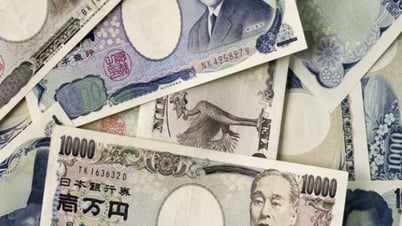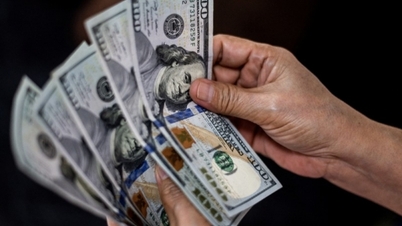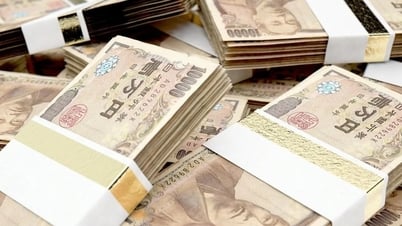Dr. Nguyen Duc Do assessed that Vietnam's inflation pressure in 2024 is not large, around 2.5-3.5%, lower than the target set by the National Assembly (4.5%).
This comment was made by Mr. Nguyen Duc Do, Deputy Director of the Institute of Finance and Economics , at the workshop on market and price forecasting on January 4.
Mr. Do gave a scenario forecasting inflation in 2024 to increase by 2.5-3.5%. This figure does not take into account the prices of goods and services managed by the State. "Inflationary pressure this year will not be high, because the world economy, especially the US and China, is forecast to slow down," Mr. Do said.
Another factor this expert pointed out is that oil prices could drop sharply if the US economy falls into recession, around $67 a barrel - equivalent to the average price threshold for the 2019-2023 period.
"The economy is still operating below its potential as exports will grow moderately and GDP will be around 6%. This is a factor that helps control inflation," Mr. Do added.

People choose goods at a supermarket in Go Vap district, Ho Chi Minh City, June 2023. Photo: Thanh Tung
Low inflation is also the opinion of many experts at today's conference. Mr. Dinh Trong Thinh, an expert from the Academy of Finance, said that the inflation rate of goods and consumption will be around 3.2-3.5%.
"In case the world economy recovers, Vietnamese enterprises will take advantage of opportunities from import and export, services and public investment disbursement, and inflation will only be 3.5-3.8%," he assessed.
The CPI in 2023 increased by 3.25% over the same period in 2022, reaching the target set by the National Assembly (below 4.5%). This is the 10th consecutive year that inflation has been controlled according to the National Assembly's target.
Inflationary pressure is not high, according to experts, which will create momentum for macroeconomic stability and growth this year. Mr. Thinh predicts that GDP will fluctuate between 5.5-6.5%.
However, Associate Professor Dr. Phan The Cong, Head of the Faculty of Economics (University of Commerce), noted that the economy still has potential "unknowns" that can put pressure on the consumer price index to increase, such as the price of medical services, university tuition fees that have just increased since the beginning of the year, or salaries that will increase from July 1.
Faced with external and internal variables affecting the economy, a representative of the Price Management Department (Ministry of Finance) said they will closely monitor developments to have timely response solutions, especially during holidays, Tet, and salary adjustments.
Source link




![[Photo] More than 17,000 candidates participate in the 2025 SPT Competency Assessment Test of Hanoi National University of Education](https://vphoto.vietnam.vn/thumb/1200x675/vietnam/resource/IMAGE/2025/5/17/e538d9a1636c407cbb211b314e6303fd)
![[Photo] Readers line up to visit the photo exhibition and receive a special publication commemorating the 135th birthday of President Ho Chi Minh at Nhan Dan Newspaper](https://vphoto.vietnam.vn/thumb/1200x675/vietnam/resource/IMAGE/2025/5/17/85b3197fc6bd43e6a9ee4db15101005b)

![[Photo] Prime Minister Pham Minh Chinh chairs meeting on science and technology development](https://vphoto.vietnam.vn/thumb/1200x675/vietnam/resource/IMAGE/2025/5/17/ae80dd74c384439789b12013c738a045)


























![[Photo] Nearly 3,000 students moved by stories about soldiers](https://vphoto.vietnam.vn/thumb/1200x675/vietnam/resource/IMAGE/2025/5/17/21da57c8241e42438b423eaa37215e0e)







































































Comment (0)